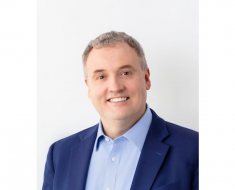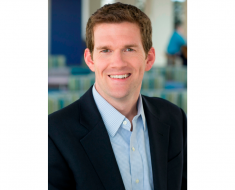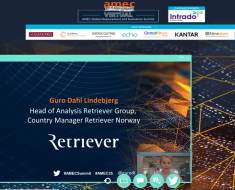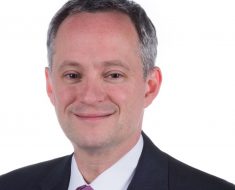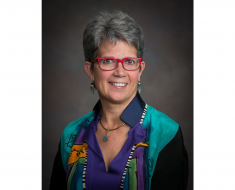On the final day of Spectra, the online conference that focuses on reputation management, Matthias Berninger, senior vice president – public affairs and sustainability, Bayer, shared his learnings from politics and business.
After a brief overview of Bayer, Berninger shared a quote from the novelist Anita Desai: “wherever you go becomes part of you”. He then went onto share five chapters of his life which have shaped him as a professional and a human being and gave away key takeaways.
The five chapters
1. Fall of the Berlin Wall (1989)
Berninger’s first chapter was the fall of the Berlin Wall in 1989 at the age of 18. Explaining his experience, he said, “I have seen how Europe and my home country, Germany, were divided. And I have seen the ugly side of a bipolar world experience personally in my family. When the Iron Curtain came down, I was roughly 18 years old and my world changed fundamentally. It’s not as fundamental as the way life has changed for many people in Asia and most notably in China, but it was still a fundamental change. And that change is something that I very much carry in me.”
2. United Nations Conference Rio (1992)
The second chapter that impacted Berninger’s life was the 1992 United Nations Conference in Rio, where ‘sustainability’ was first spoken about.
“This put sustainability on the map. Nothing since then could be strong enough to remove this topic from one of the pole positions on the global agenda. Even the pandemic we face hasn’t changed anything on that one for me. A lot of what has been discussed in 1992, is, unfortunately, still very current. For me, I have to say that the pressure on systems and the environmental challenges are actually much sharper in the impact on life today than I would have expected 30 years ago. I believe one of the key insights is that in 1992, people underestimated the speed and the impact of the changes we are facing today,” he said.
3. German Bundestag (1994)
In 1994, Berninger was elected as a member of the parliament in Germany. This gave him a sense of how the political world operates. He said, “After selling bicycles and studying chemistry, I ended up in the German parliament for 13 years. I was honoured to represent Germany in the Government, especially during the Mad Cow crisis. Those were 13 years of deep learning of how the political world operates.
4. Working for Mars (2007)
His 13-year stint with the German parliament ended with a job at Mars.
About his time at the company, Berninger said, “I decided that I don’t want to spend my whole life in the Parliament and was asked to join the family-owned company Mars, in 2007. What I took away from working for the Mars family is the importance of values, mutuality in particular. I have seen in very practical ways how we value space business decisions; we not only protect the reputation of a business but also are the foundation for sustainable growth.”
5. Joining Bayer (2019)
In 2019 Berninger joined his current employer Bayer. “I couldn’t resist the offer, because I think Bayer’s one of the very systemic players, both in agriculture and health. For me, the company is one of those companies where if we get it right, we really can have a driving force to advance the global goals on sustainable development,” he said.
He then moved to discuss three forces that he believes are most pertinent and relevant for how one needs to look at the world.
“I believe that everything we do in the space of public relations, government relations, communications, needs to look at what are the underlying forces. We are so often pressure-prompted and looking at what’s going on. The crucial question is what the underlying tectonic shifts that drive certain discussions are.”
Economic and political power shift
“The economic and political power shift that people in South Asia and East Asia experience in today’s world makes it pretty clear that it will shape our lives in the next 10 to 30 years,” he said, before showing two images – one of the truth after the Boxer Rebellion, the other of negotiations of the incoming Trump administration with the Chinese.
He explained, “During the Boxer Rebellion, you had a bunch of very young Europeans negotiating with seemingly more inflexible older Chinese representatives. And then there’s the opposite picture for the negotiations of the future of the trade relationships between the US and China. I find this one of the best pictures representing what the world is currently facing. And I think that for business to be able to navigate this power shift is going to be absolutely crucial.”
Age of the Anthropocene
Berninger explained that the world population has doubled during his lifetime, but there is no magic formula to help everybody to get rid of economic poverty.
“That is something that is impacting almost every business investment as well as public policy stakeholders – the broader public demand from the business community to do much more on the space. And the driving force is that we for the first time in human history, have the power to change global conditions, not local or regional, but global conditions. Currently, we are on the track of catapulting humanity out of its climate comfort zone. The consequences for humans around the world will be dire,” he said.
USA and China
Berninger stated how a power shift has made China one of the key players in the world and how business can help its relations with the USA.
“It will go well beyond the controversies we have seen during the Trump presidency. I think business will be increasingly direct about the changes happening in the bipolar world. The Chinese firewall for digital is only one example of friction. Next year, India will not only celebrate the 75th anniversary of its Independence, it will also lead the G20 presidency. I personally believe G20 is the place where the world needs to come together and decide on a global agenda. It helped the world to overcome the 2008 financial crisis,” he said.



